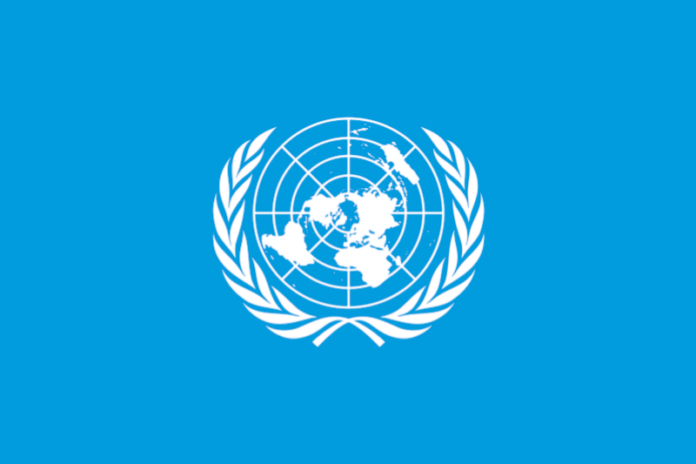Increasing evacuation orders and intensified fighting threaten efforts to contain polio outbreak
The United Nations has raised urgent concerns over the effectiveness of a critical polio vaccination campaign in Gaza, as Israeli evacuation orders severely disrupt humanitarian operations. The campaign, set to begin this weekend, aims to combat a newly detected polio outbreak—the first in Gaza in 25 years. With a baby already partially paralyzed by the virus, health experts stress the need for immediate action to prevent further spread in the densely populated and unsanitary conditions of Gaza.
The UN reports that Israeli evacuation orders have forced Palestinians into increasingly confined and remote areas. These orders, which have surged to a record 16 in August alone, have displaced approximately 12% of Gaza’s population within a matter of days. This escalation in movement comes as Israeli forces intensify their operations, targeting neighbourhoods and camps in pursuit of alleged “terror operatives.”
Embed from Getty ImagesThe situation has rendered it nearly impossible for aid workers to execute their mission effectively. Jonathan Crickx, spokesperson for UNICEF in the region, emphasized the challenge of conducting a large-scale vaccination campaign amid ongoing combat. Despite the Israeli Defense Forces (IDF) facilitating the entry of over 25,000 vaccine vials and refrigeration equipment into Gaza through the Kerem Shalom crossing on Sunday, the IDF has yet to agree to a humanitarian pause that would allow for a safe and efficient immunization effort.
The UN’s Stéphane Dujarric noted that evacuation orders have halted UN movement within Gaza, though some aid workers on the ground continue their efforts. The UN’s response is described as “a drop in the ocean” compared to the overwhelming needs of Gaza’s 2.2 million residents.
Juliette Touma, spokesperson for UNRWA, highlighted that ongoing evacuation orders significantly hinder the ability of humanitarian agencies to perform their duties. These orders have also led to a severe concentration of displaced persons in a 41 square kilometre area along Gaza’s coast at al-Mawasi, near Khan Younis, exacerbating shortages of essential resources such as water, sanitation, and medical supplies.
The polio vaccine is stored in a refrigerated warehouse in Deir al-Balah, which has not been directly affected by recent evacuation orders. However, the orders hinder aid workers from reaching scattered communities, including over 50,000 babies born since the conflict began, who are unlikely to have received any vaccinations.
To effectively halt the outbreak, the first round of vaccinations must cover 90% of Gaza’s infants and the remaining 640,000 children under the age of 10. Crickx stresses the urgency of this campaign, calling for a rapid execution within five to seven days to prevent the virus from spreading or mutating.
Analysis:
Political: The situation in Gaza underscores the complex interplay between military operations and humanitarian efforts in conflict zones. The Israeli government’s evacuation orders, while aimed at protecting civilians and targeting threats, significantly disrupt essential humanitarian work. This interference highlights the tension between military objectives and humanitarian needs, raising questions about the prioritization of civilian welfare amidst ongoing hostilities. The failure to agree to a humanitarian pause for vaccination efforts illustrates the broader challenge of balancing security concerns with the urgent needs of vulnerable populations.
Social: Socially, the evacuation orders and their impact on the polio vaccination campaign reflect broader issues of human suffering and the struggle for survival in conflict zones. The severe overcrowding and dire living conditions in Gaza’s displaced camps emphasize the social impact of prolonged conflict, exacerbating public health crises. The difficulty of conducting a vaccination campaign amid active combat highlights the intersection of social vulnerabilities with systemic failures in crisis management and support.
Racial: While the immediate racial implications of this situation are less apparent, the broader context involves racial and ethnic dynamics. The plight of Palestinians, including the challenges faced by aid organizations in reaching predominantly Arab communities, is intertwined with the ongoing Israeli-Palestinian conflict. This conflict has significant racial and ethnic dimensions, influencing the international response and shaping perceptions of the humanitarian crisis in Gaza.
Gender: Gender dynamics play a role in the humanitarian response, with women and children often being the most affected by conflicts. The challenge of reaching young children and pregnant women for vaccinations highlights the gendered impact of the crisis. Women, as primary caregivers, face additional burdens in ensuring their families receive essential health services amidst the chaos of evacuation orders and displacement.
Economic: Economically, the disruption of aid operations and the impediments to vaccination efforts have significant repercussions. The inability to effectively distribute vaccines and provide medical care exacerbates the economic strain on Gaza’s already overwhelmed health system. The financial costs associated with managing and responding to the outbreak, alongside the logistical challenges posed by evacuation orders, further strain limited resources and impede effective crisis management.
